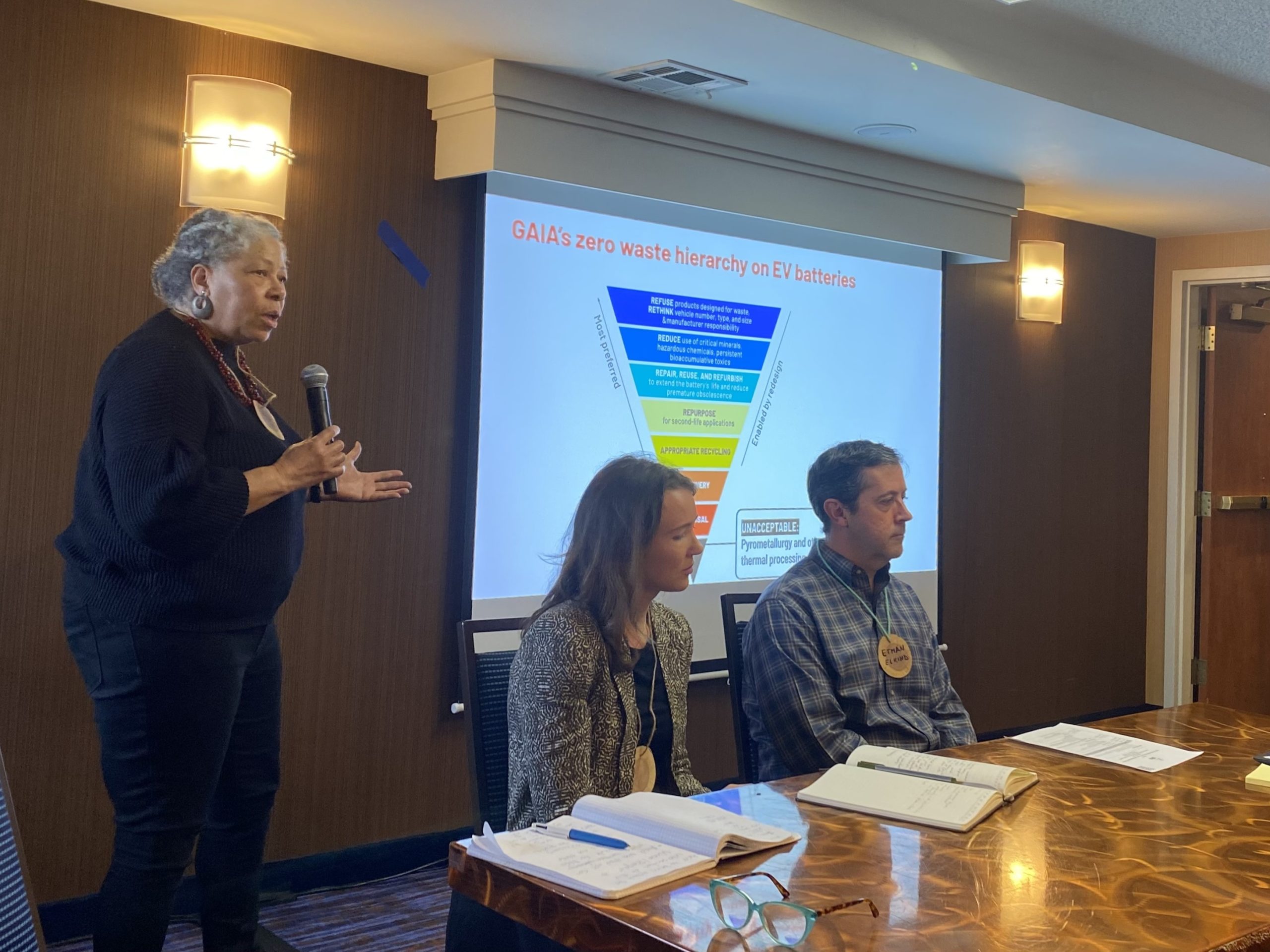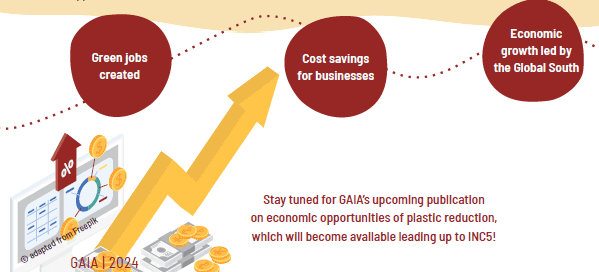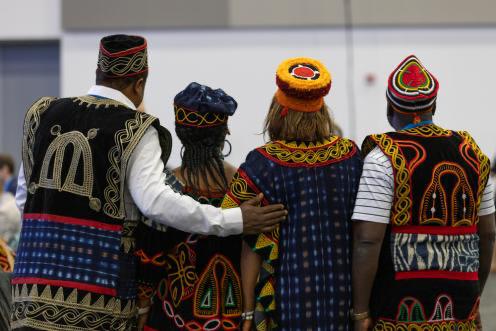INC-4 Day 6, April 28, 2024
Reminder: Global South Media Briefing TODAY at Shaw Center and online! Learn more.
Plenary Shows Overwhelming Support for Intersessional Work on PPP
On everyone’s minds going into the Shaw center on Sunday was the question of intersessional work between INC-4 and INC-5. While the discussion of “intersessional work” may sound like it’s relegated to the world of policy wonks, it remains a hot-button issue central to Member States’ ability to keep to the ambitious timeline of ratifying a plastics treaty by the end of this year. Intersessional work means a convening in person, online, or a hybrid, to advance negotiations ahead of the official INC date.
While this in theory sounds uncontroversial, the mandate of intersessional work opens up a minefield of contention over who gets to be in the room, and what is discussed. Conflicting opinions on intersessional work led to a showdown at INC-3, where Russia and Saudi Arabia led a small group of petro states who insisted that intersessional work only cover waste management, and be closed to observers. Talks fell apart without agreeing to a mandate for intersessional work, putting even more pressure on delegates to make up for lost time at INC-4.
Sunday’s plenary on intersessional work, however, was a far cry from the dysfunction of INC-3. There was resounding support for including PPP (primary plastic polymers) in the scope of intersessional work, with almost sixty countries speaking out in favor of Rwanda and Peru’s proposal on the same. Fiji had a particularly strong intervention, stating: “We can’t afford to indulge the interests of a select few when they have nothing to lose and we have everything to lose…a job half done is a job not done. The science is clear: we cannot limit to 1.5 degrees without reducing plastic production.” There was also a heavy emphasis on including financial mechanisms in the intersessional work.
In another victory for civil society, over 50 countries insisted that they be present for intersessional work to provide vital expertise (even the United States!), and no country openly dissented. The delegate from Senegal was particularly vocal on this: “Civil society must participate in our work. It should not be left on the sidelines, it should accompany us all the way through to the achievement of the final instrument.”
Once again, Global South countries led the charge for a progressive approach to intersessional work, with a show of unity from the African Bloc, GRULAC (Group of Latin America and the Caribbean), AOSIS (Alliance of Small Island States), and PSIDS (Pacific Small Island Developing States).
These resounding calls drowned out the attempts by low-ambition countries to weaken the mandate for intersessional work with the usual playbook: focusing on waste management. However, unlike the united front from ambitious countries, the splintering “Like-Minded Group” has started to bely its namesake. The group attempted to put forward a counter-proposal for intersessional work, calling for only non-controversial waste management topics to be included in a closed technical working group, but weren’t able to get consensus even amongst themselves, ironic for a group who holds consensus as very dear to their hearts.
The plenary concluded with the Chair tasking himself with writing a new proposal for intersessional work based on Member State input, debate over which is expected to dominate the closing plenary. The million dollar question is whether the Chair will heed the overwhelming calls from a massive group of Member States to include PPP.
Countries in support of addressing PPP in IW (i.e support for Peru-Rwanda’s Proposal)
- Switzerland
- Mauritius
- Peru
- Rwanda
- Malawi
- Micronesia
- Senegal
- Vanuatu on behalf of PSIDS (+14)
- Israel
- Iraq
- EU (+27)
- Philippines
- Thailand
- Fiji
- Norway
- Cook Islands
- Palau
- Uruguay
MS that called for CSOs to participate in IW as Key Resource People
- Vanuatu (PSIDS – Equal rep) (+14)
- Monaco,
- South Africa
- Switzerland
- Nigeria
- Senegal
- UK
- Israel
- USA
- EU (+27)
- Norway
- New Zealand
- Tunisia
- Guinea Bissau
Contact:
Claire Arkin, Global Communications Lead
claire@no-burn.org | +1 973 444 4869
References:
- GAIA Asia Pacific Newsroom
- GAIA Africa Daily Recap
- Interview with delegate from Rwanda
- BFFP POP-Lite
For more information about GAIA’s treaty advocacy, please visit no-burn.org/unea-plastics-treaty, follow us on X @gaianoburn, and read our Press kit.




























